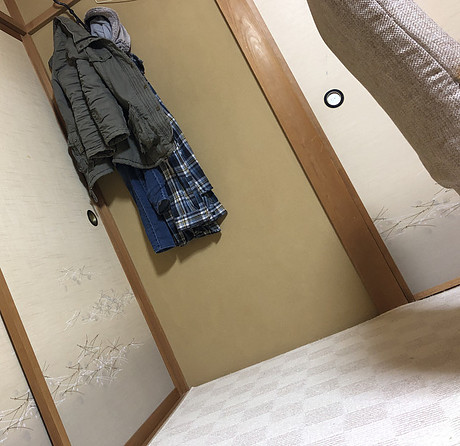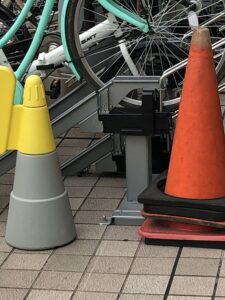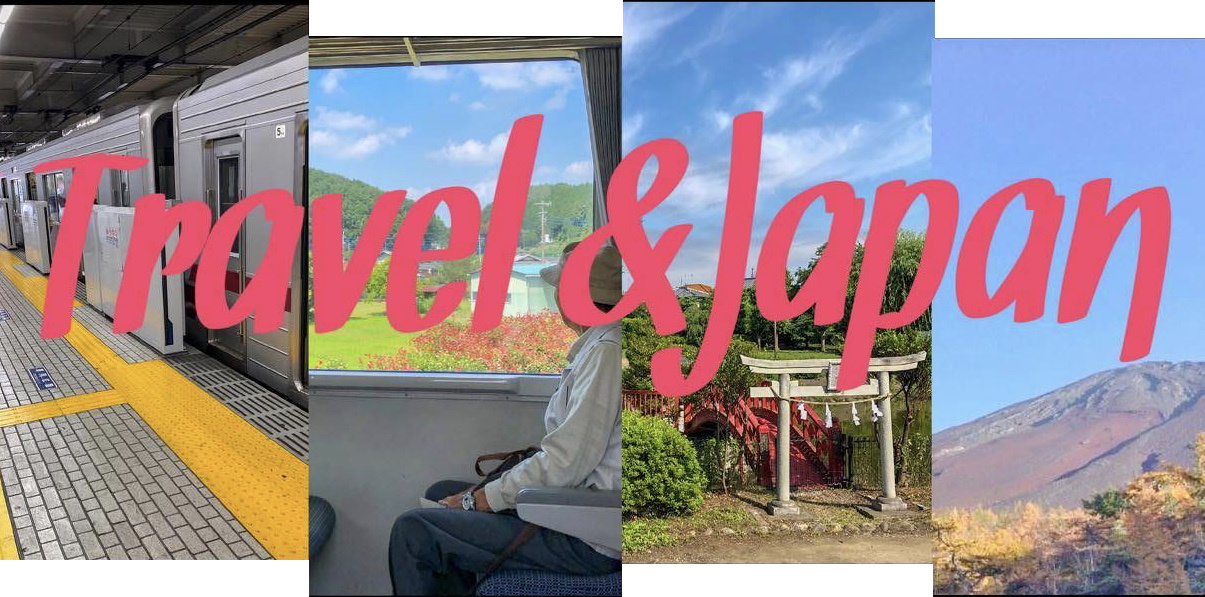Japan has intentionally made it difficult to move to the land of the rising sun but things are getting better. Japan’s shrinking population is a big problem for Industry and to combat the problem the Japanese government is slowly changing the laws to allow more foreigners to live in Japan for a short time, usually 5 years.
If you find yourself wanting to live in Japan here is the complete guide on how to move to Japan.
Making the decision
Japan is a wonderful place to live. Every day off is another day of adventure. Mount Fuji tour, bullet train to Tokyo or Kyoto, onsen, shopping, temples, shrines, festivals…the list is endless. This is a consideration that brings happy thoughts and a smile on your face.
However, many foreigners find the work environment difficult to adjust to. Long hours, low pay, no long vacations, treatment by co-workers are a few things people working in Japan discuss. While the Japanese government is addressing these issues change is slow. Still, the number of foreigners working in Japan is steadily increasing.
For some people, the choice is clear because they can make more in Japan than in their home country. For others, it’s visiting a different country and seeing the sights while gaining experience for their resume.
I know people who love it here and people who are struggling with the culture and work environment. Everyone’s experiences are different but a positive attitude along with a good support Infrastructure will help you start your Japan adventure correctly. 
I believe this can be found in any country a foreigner chooses to live but some workers in Japan end up being caught in human trafficking and slave labor. I couldn’t Imagine working my life away with little to no pay and finding it impossible to get out of my unfortunate circumstances.
Read about some of the scams to watch out for here. Unfortunately even I was taken in by one of these in my quest to live in Japan.
Things to consider
- Travel insurance (click here for my Travel Insurance review)
- The health insurance in your home country may not cover the medical cost in another country.
- You might not have any healthcare while flying to Japan.
- If the airplane needs to divert to a different country in case of a Medical Emergency.
- It may take a while before you have Japanese health insurance. Especially if you come to Japan before you have a job.
- Mobile Wi-Fi (click here for my JapanWifiBuddy review)
- You Probably turned off your cell phone service since you’re moving to Japan. Besides you probably don’t want to pay roaming charges.
- Unless someone picks you up at the airport you’ll need a way to navigate.
- It can take weeks to have internet service turned on at your residence.
- JR Rail Pass (click here for my Japan Rail Pass (JR Pass) review)
- Usually, the company that hired you wanted you to arrive in Japan weeks before you start working. You can explore Japan while saving money on train fare.
- Your company may reimburse your travel fair to and from work but your first paycheck might be three to six months away.
- Once you’re no longer a tourist you cannot buy a discounted JR Rail Pass.
- Pasmo/Suica card
- These cards are how you easily pay the fare for busses, trains, and subways.
- You can use this care at train stations to buy drinks from a vending machine.
- Much easier to use than buying a ticket or using money.
- The card is free and can be personalized in case you lose it.
- Use the card option in a ticket/recharge machine at the train station to issue your card.
- Hanko
- You’ll need one to open a bank account and to stamp work documents.
- I had mine made with my Initials in English.
- Buy a hard protective case to go with it.
- I recommend having it made at a Hanko shop.
- Cash
- Most stores in Japan still take only cash.
- Have cash on you at all times especially in the summer. You’ll need to stay hydrated at all times.
- ¥100 shop
- 100 yen shops are the best place to fill your home with all the small stuff you’ll need for everyday life.
- These stores are not difficult to find. Even when I lived in rural areas one was close by.
- Bank account
- You’ll need your Hanko, Residence card, and passport to open an account.
- I recommend getting two or three accounts from different banks. I’ve found that not all accounts are the same and need to use different accounts for different thinks like transfer money, buy things at stores, or paying bills online.
- Not all banks have support in different languages. English is becoming popular but not other languages.
- Paying utility bills
- Pay utility bills at any convenience store.
- Save receipts
- Register your address
- Visit your local city hall or ward office and register your address within 14 days from moving into your home.
- The information will be printed onto the back of your resident card.
- Learn emergency numbers
- 110 police, 119 fire or ambulance, and 118 coast guard
- Medical insurance
- Usually, your company will sign you up and deducts the amount from your pay.
- If your company does not sign you up you’ll need to visit the ward office to sign up.
- Payment goes by your last year’s earnings so your first year will be considerably less than your second year.
- Cell Phone
- If you don’t speak Japanese take a friend who does.
- Be sure to take your Residence card with you.
- Research your options before going to the store so you’re not talked into something you don’t need.
- Google Maps
- Use Google maps to get around. You can map out your route and Google maps will list the route and all connections, the fare, platform, and if there is construction.
- I find the satellite option useful in locating the correct place.
Visa and job
A visa and Job go hand in hand when thinking about living in Japan. You cannot work in Japan without a work visa. A 30 or 90-day tourist visa is not a work visa. If you work in Japan while you have a tourist visa you are breaking the law. The punishment could be jail time. deportation, or both. In any case, you are banned from entering Japan for 5 years.
Apply for Jobs in Japan while in your home country. I seriously recommend you have a job in Japan before coming to Japan. This way all the paperwork for your visa can be done while you’re still in your home country. Also, there is no guarantee you will find a job in Japan while on your tourist visa.
In the past, it was easy to come to Japan and within 90 days secure a job and visa. (I did this my first time moving to Japan) Now companies don’t want to wait three months for an employee’s COE (Certificate of Eligibility) to process. There are too many candidates who already have a Visa. 
Several English teaching company’s put “Start work immediately” on their job posting which is a nice way of letting candidates know they should already have a visa. Other companies post must have a visa and experience.
In the past large English teaching companies would hire a candidate who was already in Japan but now several of these companies are only hiring candidates still in their home countries if you don’t have a visa. Not just any visa but the correct one for their work. You can’t teach with an engineering visa. You’ll need an instructor visa or Specialist in humanities visa.
There are so many candidates that several companies are upping the requirements by adding certifications to their list of requirements. Jobs that I applied for a few years ago are now requiring Japanese language skills and TESOL (Teaching English as a Second Language). Countries like the Philippines have several Japanese language programs to aid with this. The time when you could easily get an English teaching job is quickly coming to an end.
Other jobs, depending on what your home country is, are difficult to find without Japanese skills. The two exceptions I have found are programming which falls under IT (information technology) and working for an international company that uses the English language as their Primary communication language.
Most companies in Japan do not want to help you with a COE. Many companies will give you visa support only if you already have a visa. The company will renew the visa you already have when it expires. So you might need to get a visa from one company then get the job you wanted before your visa expires.
A COE can also be given to someone who wants to attend a college or university in Japan. Language school students can also receive a COE. This person will receive a student visa and can only work part-time because Japan believes a student should focus on their studies. 28 weekly hours are considered part-time. In between semesters, the student can work 40 hours a week.
This is a great way to have a Japanese company on your resume while learning the Japanese language.
If you want your child to move to Japan because they can make more money here then I recommend you start them learning the Japanese language at an early age or enroll them in programming classes as soon as they can speak. By the time they reach 19 years of age they will be ready to enter a Japanese college or the workforce in Japan.
Job websites
Studying Japanese
Even though the average Japanese person has had at least 6 years of English language learning very few speak the English language other than greetings. Even fewer know any other language. I’ve found that many Japanese are Isolationists. They don’t want foreigners living here and they don’t want to learn a different language. The biggest reason is the eroding away of their culture.
If you want to work for a Japanese company or a company that requires communication with Japanese coworkers or customers (any stakeholders) then you need Japanese language skills. A person without a JLPT (Japanese Language Proficiency Test) certification can’t even apply for the job.
JLPT N5 and N4 are learning the basics of the Japanese language and there are a few jobs at this level but you’re competing with several candidates. JLPT N3 is conversational Japanese and this level offers a lot of jobs. Especially in the service industry and any customer service industry. There are several candidates but the amount of jobs is larger than the number of people applying for them.
JLPT 2 has a few jobs but also few candidates since it takes a considerable amount of effort to reach this level. This level has no trouble finding a job since they can apply for any job below their level. JLPT 1 is fluent which opens up any Job that doesn’t ask for a native speaker.
Different ways to learn Japanese
1. Learn on your own – The only way this will work is if you set aside a few hours each day and make yourself study. If you cannot do this use one of the other ways listed here. I recommend scheduling at the same time every day to form a habit. I found that the Japanese from Zero! books are the easiest to learn from. Read my full review here.
2. Online learning – While I was doing self-study I also used online learning to practice with a native teacher. This is a must because unless you speak the language with someone you’re never going to learn how to interact with others using the language. A teacher can correctly correct your language where just practicing with anyone can lead you down the wrong path. I use italki for my online learning. Read my full review here.
3. Go to school – There are a lot of options for this. If you can visit Japan for one to three months there are schools here that have cram learning available. Also, there are semester driven language schools in Japan. College in your home country or Japan sometimes offers Japanese language courses.
4. Get a job where they speak Japanese – After learning up to JLPT N3 find a job in Japan where you can speak with native speakers. This will help more than anything.
5. Free or low-cost classes in Japan – After moving to Japan ask at your local ward office about Japanese language classes in the area. These classes are run by Volunteers and one to two days a week. Depending on the area you might be able to go to different classes each day of the week. You’ll need to travel to different areas but it’s possible.
Start your children leaning a language as soon as possible, the younger they are the easier it is for them to learn. Learning an extra language gives a child extra opportunities they would not have otherwise.
Apartment
Try to find a job where the company supplies you with an apartment. Especially your first time in Japan when you don’t know how to navigate and solve problems. Several English teaching jobs include a place to live. The company will deduct the payment from your paycheck. You usually need to pay the utilities yourself but some companies will also do this for you. Sometimes if you’re lucky the utilities are included in the rent. This is the rent setup I have and it’s great. (Although I don’t teach English and I found my apartment on my own)
Usually, the company you work for will assign you an apartment close to your workplace. The company will expect you to pay for all move-in fees. These fees can be considerable so if you have time you might want to shop around for an apartment you pay for directly.
If you need to find an apartment on your own you should consider the following.
The first thing to think about when selecting an apartment is the location. The closer your apartment is to the train station the more you’ll pay in rent. However, this only matters if you need to use the train to go to work. If you can get an apartment close to your workplace in the same town then you might end up saving a lot of money. The only drawback is when you need to use the train it’s a long walk to the station. I don’t ever recommend a taxi unless you’re completely exhausted.
 Save time and ride a bike to the station but did you consider the parking fees for bikes. In rural areas, this is not an issue but in large cities, you may find it difficult to find a bike parking space. Additionally, it cost money to park your bike in these spaces. Your bike will be locked into place and the only way you can retrieve it is to pay.
Save time and ride a bike to the station but did you consider the parking fees for bikes. In rural areas, this is not an issue but in large cities, you may find it difficult to find a bike parking space. Additionally, it cost money to park your bike in these spaces. Your bike will be locked into place and the only way you can retrieve it is to pay.
The second thing to think about is the upfront apartment cost.
The upfront cost of most apartments in Japan can be huge. The list is long and landlords charge differently. Let’s look at some of the charges.
Key money
Deposit
Management Fee
Renewal / re-contract fee
Pet Fee
Cleaning Fee
1. Key money – This is basically free money you give the landlord for the pleasure of renting from them. It can be 3-6 months of rent or as much as the landlord wants. There is not a set value and the money is not returned.
2. Deposit – This is usually 4 to 6 months of rent. It’s a huge amount of money but you might have no choice. In the past foreigners left the country without paying their rent so this is what the result of that indiscretion is. This money will be returned to you when you move out unless there are damages that need to be repaired.
3. Management fee – If you rent in a large apartment complex then you will pay a monthly management fee. The fee covers the cleaning and repairs of the building. Things like elevators, cleaning the entrance, and security systems. This fee is not refunded.
4. Renewal / re-contract fee – A fee to extend the rental lease for another year or two. This is usually in a rental contract and you do need to pay it if you want to continue living where you are.
5. Pet fee – Some landlords will charge a monthly pet fee. Especially if they furnish the apartment. This fee is not refunded.
6. Cleaning Fee – A cleaning fee is paid just before you move out or Is taken out of your deposit. The landlord will hire a cleaning crew to come in and clean the apartment or home after you’ve moved out. This fee is not refunded.
It’s not unusual to pay a 4-6 months deposit, key money, monthly management fee and pet fee, and a re-contract fee. The cost can literally be several thousands of dollars.
I, on the other hand, found a company that rents furnished/unfurnished apartments to foreigners, and the only upfront cost is the first month’s rent. (OYO Life) I do need to pay a cleaning fee when I move but that is small compared to the upfront cost of most apartments.
The third thing to think about when thinking about an area to live in.
The closer you live to a major city the more you’ll pay in rent. For the amount of money you pay for an apartment in Tokyo, you can rent two large houses in a rural area in the mountains. It’s all about the location so don’t be shocked if you spend most of your paycheck on a small apartment in Tokyo. Adding an extra hour of commuting to work and your rent cost could end up being half.
The company will pay your travel cost and you save on rent. However, this is not possible if the company provides you with an apartment. You might want to ask the company you work for if they have flexibility in this area, especially if your rent is almost as much as your paycheck. Working each week without any money to play gets old fast.
Moving Household Goods
See my moving household goods guide here.
Saving money
Buy a $200 refrigerator, $300 washer, and some things from the 100 yen store and you have a home. Back in the United States, I would spend thousands of dollars on junk I didn’t need to fill my huge house. That’s not possible in Japan because the homes and apartments are small. Buy only what you will use and invest the rest of your money.
I have read stories of foreigners returning home from Japan with a huge bankroll or invested in real estate so when they return home they already have a retirement plan.
I know a person that built an apartment building in the Philippines with their leftover cash and now they never need to worry about money.
Saving money doesn’t mean you never do anything. There is a lot to do in Japan that doesn’t break your bank account. I have even located the restaurants in my area that provide delicious food cheaper than I can make it myself. I can buy from second-hand shops and the products are like new because the Japanese take care of everything they own. It depends on you and if you want to save money you will.
The amount of pay you receive as an English teacher is usually the same in all areas of Japan. If you want to save a lot of money get a Job in the most rural area you can. Low rent, small food bill, and a small amount of entertainment allow for maximum savings. You might be bored for a few years but that boredom will fade when you buy your house with cash or end up having a fully funded retirement account.
Culture
Learning Japanese culture is a must especially if you’re working for a Japanese firm. Check out my Learn Japanese culture page here.
Lifestyle in Japan
Living in Japan is a joy for some but can be unsettling for others. Check out my Lifestyle in Japan page here.
Leave a comment
What story do you have about living in Japan? Let me know below.
What else do you want to know about living in Japan? I’m here to help. Write me a comment.


